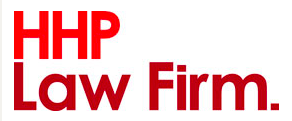20 July, 2019
Recent Development
On 26 June 2019, the Government of Indonesia issued Government Regulation No. 45 of 2019 ("GR-45/2019") regarding the calculation of taxable income and payment of income tax within the current year. The regulation came into force on 26 June 2019, and it amends Government Regulation No. 94 of 2010. GR-45/2019 expands the criteria for taxpayers eligible for tax incentives and the types of tax incentives these taxpayers can receive.
Implications for Taxpayers
Before GR-45/2019 was issued, only corporate taxpayers in the pioneer industries and several other industries could receive tax facilities (as either a tax allowance or a tax holiday). GR-45/2019 has expanded the criteria for taxpayers that may enjoy tax facilities, irrespective of the industries.
Below are the criteria of domestic corporate taxpayers that may now enjoy tax facilities:
- domestic corporate taxpayers that make new investments or pursue business expansion in certain business sectors that: (i) are labor-intensive industries; and (ii) do not obtain facilities referred to in Article 31A of the Income Tax Law or facilities referred to in Article 29 paragraph (1) of GR 45/2019
- domestic corporate taxpayers that carry out work practices, apprenticeships and/or learning activities in the context of coaching and developing certain competency-based human resources
- domestic corporate taxpayers conducting certain research and development activities in Indonesia
The tax facilities provided vary depending on which of the above criteria the domestic corporate taxpayer meets.
What the New Regulation Says
New Investments or Business Expansion in a Labor-Intensive Industry
A domestic corporate taxpayer that makes new investments or pursues business expansion in a labor-intensive industry may receive a net income reduction of 60% of the total investment in the form of tangible fixed assets, including land used for main business activities, which is charged for a certain period of time.
In addition to being a labor-intensive industry, the domestic corporate taxpayer must not obtain tax allowance facilities (under Article 31A of the Income Tax Law) to enjoy this tax facility.
Work Practices, Apprenticeships and/or Learning Activities
A domestic corporate taxpayer that carries out work practices, apprenticeships and/or learning activities in the context of coaching and developing certain competency-based human resources may receive a tax facility in the form of gross income reduction. The reduction is at most 200% of the total costs incurred to carry out the work practices, apprenticeships and/or learning activities.
The activities conducted by the domestic corporate taxpayer must be for the purpose of increasing human resources quality in order to create an efficient and effective workforce that meets the need of businesses and industries.
Research and Development Activities
A domestic taxpayer that conducts research and development activities in Indonesia may receive a tax facility in the form of gross income reduction. The reduction is at most 300% of the total costs incurred by the domestic taxpayer to conduct research and development activities in Indonesia.
Research and development activities that may receive the tax facility are those conducted in Indonesia aimed at invention, innovation, control of a new technology and/or transfer of technology to develop industry for the purpose of increasing the national industry's competitiveness.
Actions to consider
Further implementing regulation on this tax facility will be stipulated in a Minister of Finance regulation. As the provisions under GR-45/2019 are still general, further consultation may be required to fully understand the details of these new tax facilities.
For further information, please contact:
Ponti Partogi, Hadiputranto, Hadinoto & Partners
ponti.partogi@bakernet.com





